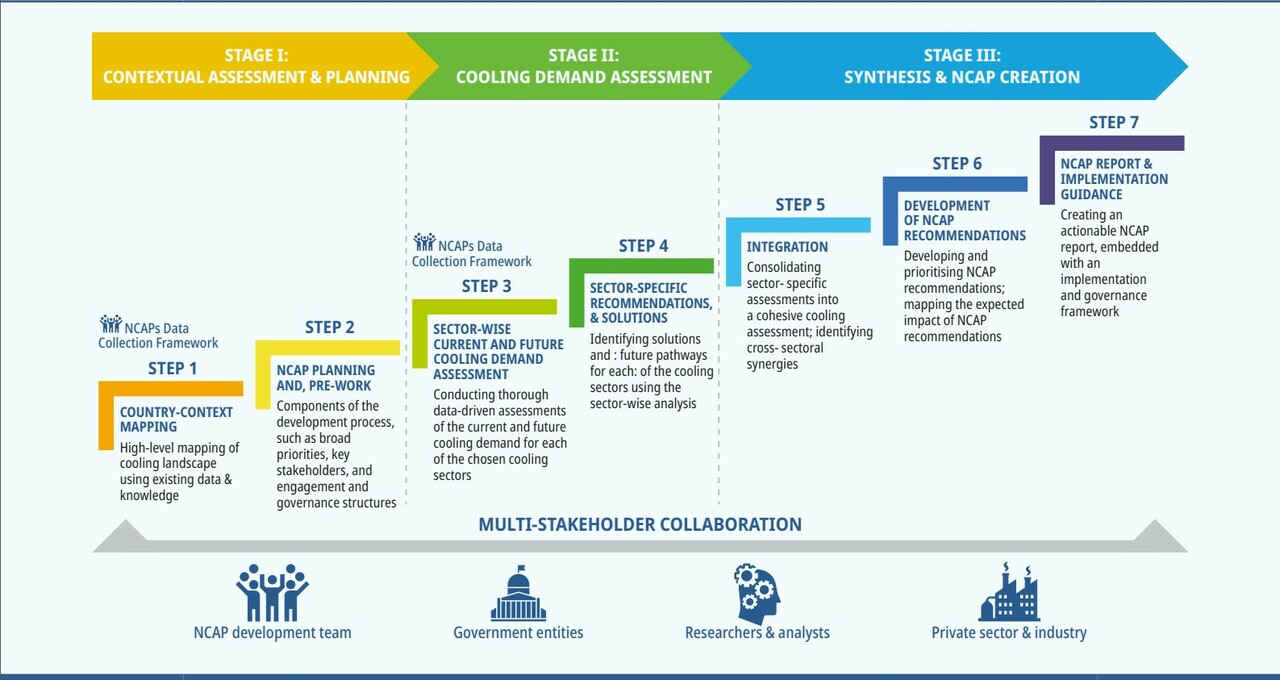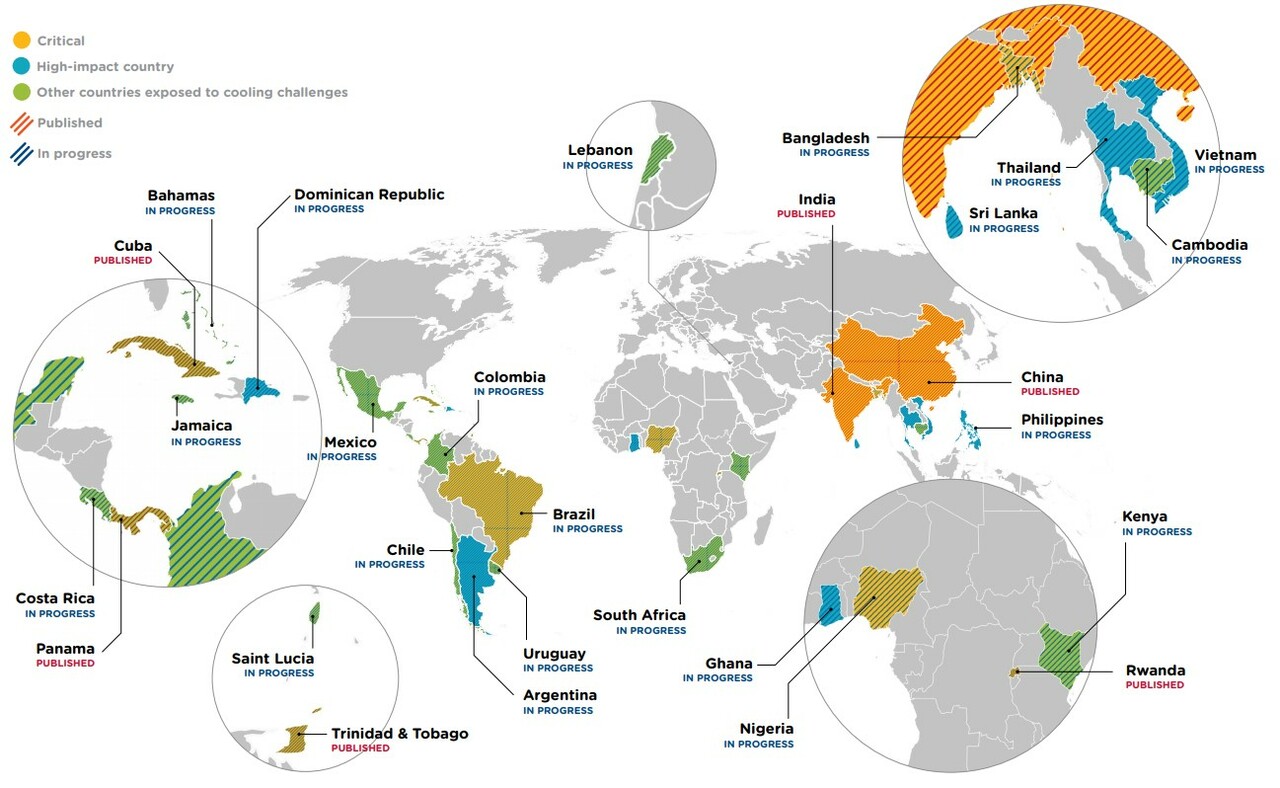Assisting developing countries in setting national plans for sustainable cooling
With over a billion people at risk due to a lack of access to cooling, a UNEP-led working group has published a methodology to help countries develop National Cooling Action Plans (NCAPs).
According to the 2021 Chilling prospects report, a little over a billion people across 54 countries are at high risk due to a lack of access to cooling and therefore lack of access to life-preserving necessities like vaccines and safe food. [1]
To promote sustainable cooling, the UN calls countries to develop National Cooling Action Plans (NCAPs). These should identify people groups that are vulnerable due to a lack of cooling; promote the adoption and increased stringency of Minimum Energy Performance Standards (MEPS) and identify potential financial mechanisms for cooling. NCAPs can also include measures to help countries achieve the objectives of major international treaties such as the Kigali Amendment to the Montreal Protocol and the Paris Agreement. [1]
To support governments in this task, a NCAP Methodology has been developed by the UNEP-led Cool Coalition and the United Nations Economic and Social Commission for Asia and the Pacific (UN ESCAP) in collaboration with the Alliance for an Energy Efficient Economy (AEEE) and the Kigali Cooling Efficiency Programme (K-CEP), together with the expertise of several other organisations gathered within the NCAP Working Group. [2]
The NCAP methodology can be adapted to fit a country’s specific context, priorities and development goals. It outlines a process that is within the reach of most countries and can enable immediate and prioritised action towards climate-friendly cooling. The NCAP Methodology consists of three sequential stages:
- STAGE I: CONTEXTUAL ASSESSMENT AND PLANNING – This foundational stage helps inform priorities of the NCAP specific to the country and guide the overall planning process. The key stakeholders and governance are also established.
- STAGE II: COOLING DEMAND ASSESSMENT – Assessment of the current and future cooling demand (and impacts) that will inform sector-specific priorities, including recommended policy intervention.
- STAGE III: SYNTHESIS AND NCAP CREATION – Consolidating sector-specific assessments, and identifying cross-sectoral synergies, establishing country recommendations with broad buy-in. Guidelines for the creation of the action plan are provided to ensure that the document is actionable and has the authority and governance structure to implement the recommended actions.

The NCAP methodology also includes a toolkit of Data Assessment Frameworks to provide guidance on data collection. The frameworks are available for download and cover the following cooling sectors: Space cooling in buildings, Mobile air conditioning, Industrial process cooling, Food cold chain.
Download the toolkit on FRIDOC
According to the 2021 Chilling prospects report, countries that have published NCAPs are Cuba, China, India, Panama, Rwanda and Trinidad and Tobago. In 2020 the COVID-19 pandemic caused a significant delay in the publication of other NCAPs previously in development. Nevertheless, there are currently over 20 countries developing NCAPs.

Sources
[1] Chilling Prospects: Tracking Sustainable Cooling for All 2021. https://www.seforall.org/data-stories/national-cooling-action-plans
[2] National Cooling Action Plan Methodology. https://www.unescap.org/kp/2021/national-cooling-action-plan-methodology
